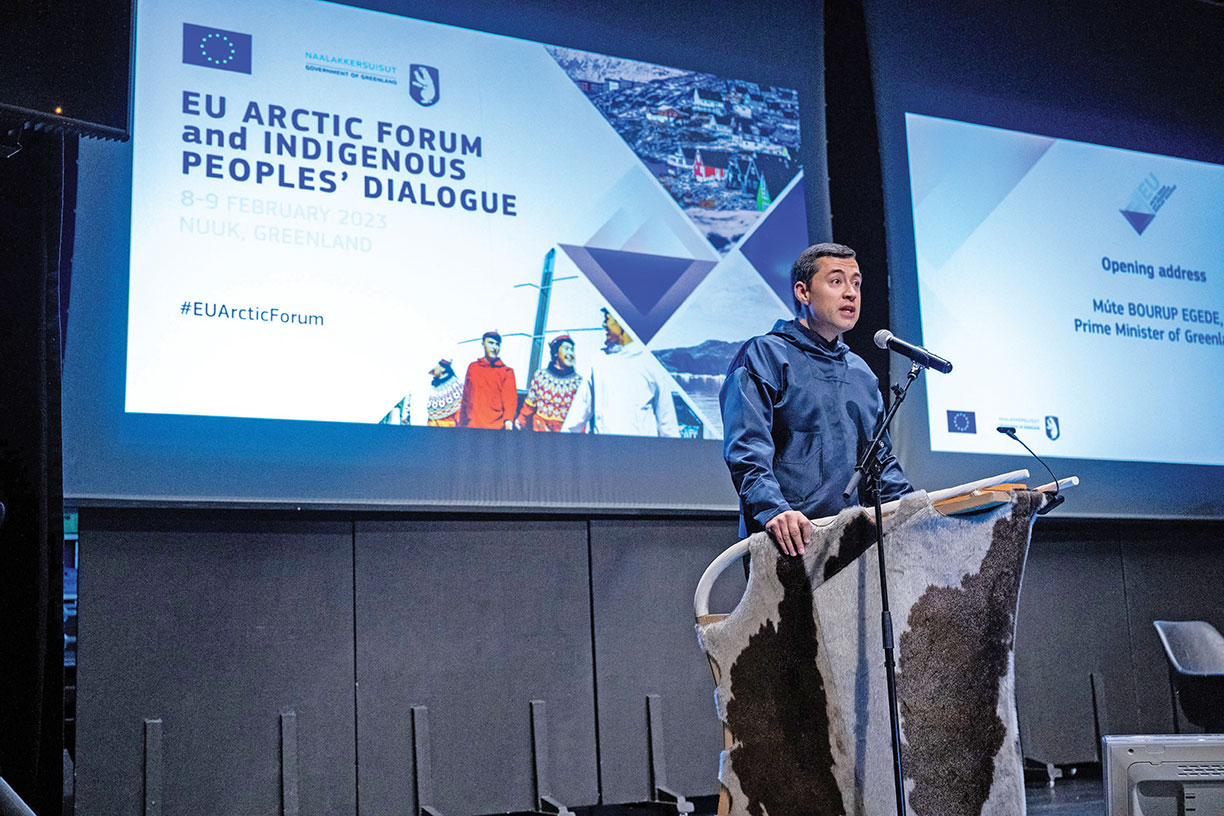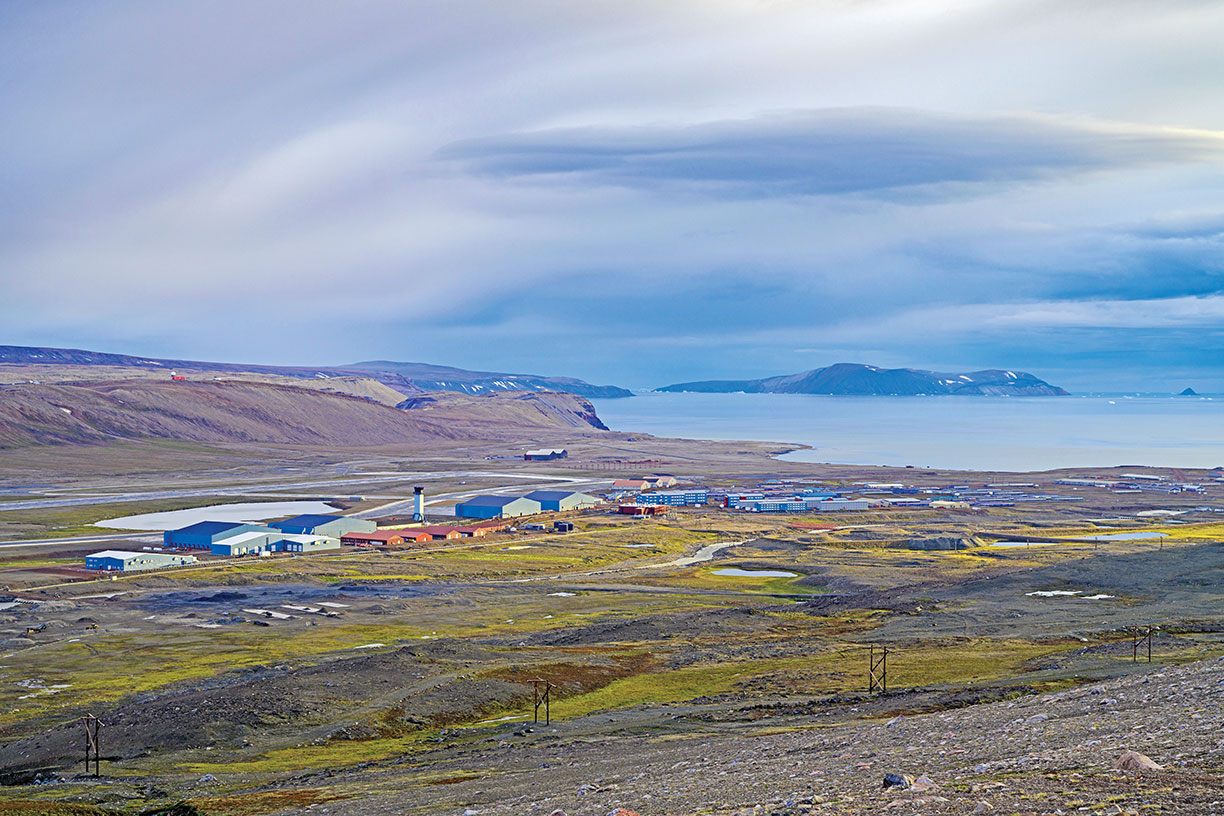SARA OLSVIG/UNIVERSITY OF GREENLAND
The longstanding defense relationship between Greenland and the United States has strengthened in recent years. As their self-government evolves, Greenlandic politicians have been increasingly vocal about their position on the country’s role in North American defense and security, and the messages are clear: Firstly, Greenland sees itself as an integral and important ally to the U.S. and NATO, and secondly, Greenland wishes to engage more directly with the U.S. on matters relating to trade and business development and defense and security.
Recently, the Russian invasion of Ukraine has resulted in clear positioning by Naalakkersuisut, the government of Greenland. An unambiguous alignment with the Western alliance came early and promptly when Greenland joined the sanctions against the Kremlin, while pulling out its government-owned fisheries businesses in Russia. As Greenland’s fish exports make up 93% of its total exports, according to Statistics Greenland, with rising numbers sent to Russia, the prompt reaction by Naalakkersuisut should be noted as an important and unmistakable message from Greenlandic politicians toward their allies.
Greenland is a nation in transition, from its colonial past with limited self-determination to the contemporary wide degree of self-governance. The current constitutional arrangement, with Denmark continuing to hold sovereignty over Greenland, is constantly tested. Throughout its political history, Greenland has pushed for greater autonomy, which has resulted in the Home Rule arrangement of 1979, establishing Greenland’s parliament and government, as well as the Self-Government Agreement in effect today. Currently, Greenland has decision-making power across virtually all areas of legislation, including trade and business-related foreign policy, while security and defense, as well as sovereignty and citizenship matters continue to be under Danish authority.

However, the mere act of implementing self-governance within various legislative areas is creating more gray zones of decision-making, as decisions taken in Greenland’s parliament often have wider foreign policy, security and defense implications. Examples include changes to Greenland’s infrastructure, such as airports and fiber-optic cables for internet connectivity as well as mining and industrial projects, which attract foreign investments and foreign workers.
Throughout Greenland’s political history, it has elbowed its way onto the international stage, acting as a nation-state that wishes to speak on its own behalf. This has given its politicians the tools to act successfully on their own behalf, while being recognized by international partners such as the European Union, various East Asia business entities, and by other Nordic and Arctic partners. Thus, Greenland has actively tested its foreign policy autonomy toward Denmark, as well as the U.S.
In recent years, Greenland’s push for a closer, more direct relationship with the U.S. has succeeded; the U.S. has engaged with Greenland by establishing a consulate and signing agreements bilaterally with the self-governing nation, while settling a longer dispute on the base maintenance contract at Pituffik Space Base. In the process, Greenland’s request to speak more directly with the U.S., while still involving Denmark when necessary, has been met. This can be interpreted as a paradigm shift in Greenland’s foreign policy — one that requires a large level of trust between Greenland and Denmark and between Denmark and the U.S.

Being fully aligned with broader foreign and security policy is what makes this shift possible. Therefore, Greenland’s clear alignment with the Western alliance with respect to Russia’s aggression in Ukraine is a precondition to make Greenland’s increased independence possible. This does not come easily, or without costs, however. Testing the foreign policy action space has taught Nuuk and the diplomatic corps in the nation’s capital valuable lessons. All in all, Greenland maintains a strong hand toward Denmark. Its role within the Danish kingdom helps define Denmark as an Arctic state, and increasingly, the U.S. seems to recognize Greenland as playing a more important role in U.S. and North American security. The latter was affirmed in the October 2020 agreements among Greenland, Denmark and the U.S. that included recognition of “Greenland’s key role in Greenlandic, U.S., and transatlantic security.” In conclusion, Greenland’s growing bilateral relationship with the U.S. has also resulted in greater alignment with the Western alliance in matters of overall global security. That Greenland, in its continued insistence for self-determination, proactively seeks stronger ties with the U.S. can be seen as a positive step. This development should not be seen as diminishing Danish control of Greenland, whose power over Greenland was initiated by colonization three centuries ago. Rather, it should be seen as a natural development following Greenland’s widening self-determination realized through Greenland’s own agency during the past five decades. The growing U.S.-Greenland partnership is an inevitable development of a democratic and peaceful transition of decision-making powers to the small statelike Greenland, building further capacity and knowledge of its role in the northeastern flank of U.S. and North American security.


Comments are closed.